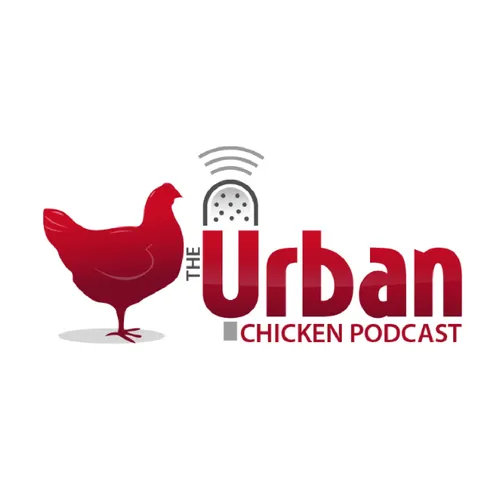UCP Episode 013: The Ins and Outs of Washing Eggs
- Author
- Jen Pitino: Urban Chicken-keeper & Backyard Chicken Enthusiast
- Published
- Thu 13 Jun 2013
- Episode Link
- http://www.urbanchickenpodcast.com/ucp-episode-013/
Soak your eggs in water with one cap of bleach…wash your eggs with warm water…wash your eggs with cold water…wash your eggs with non-toxic dish soap…wash your eggs with baking soda… don’t wash your eggs…etc. There is a lot of conflicting advice on the internet on whether you should wash your freshly laid, backyard eggs and if you are going to wash them – what the correct method is.
Should you wash your backyard eggs, is a debate in which technically neither side is right or wrong. There are strong arguments against washing your backyard eggs. Chickens lay their eggs with a protective, protein-like coating on them called a bloom or cuticle. This bloom seals the pores of an eggshell preventing the passing of bacteria from the outside of the egg to the inside. Moreover, the bloom’s seal on an egg helps slow the deterioration of the food inside. Eggs stay fresher longer with their blooms left intact. Washing an egg removes this natural, protective coating. Eggs which keep their blooms, don’t need to be refrigerated. European commercial egg producers do not wash their eggs, unlike egg producers in the United States, which are required to wash their eggs by the U.S.D.A. This is why Europeans don’t refrigerate their eggs, but store them at room temperature.
But what do you do with poopy, dirty eggs? Let’s face it, not all the eggs collected out of the coop are in pristine condition. This is where the “wash your eggs” advocates gain some traction with their side of the wash/don’t wash egg debate. No one wants poopy eggs in their fridge. Moreover, you can’t really gift dirty eggs to your friends and family who are already disconnected to the nitty-gritty of food production. Receiving muddy/poopy eggs would simply gross them out. Truth be told, maybe muddy/poopy eggs sort of gross you out too. Advocates of the “don’t wash your eggs” camp advise that you use sandpaper to lightly scrub off the dirt and poop while keeping the bloom safe. It does seem a strange practice to take up – sanding your eggs. However, it is effective. On the other hand though, it may seem a lot simpler and more natural feeling to just wash your eggs.
If you do decide to go the route of washing your eggs, you need to consider how to best wash your little orbs of deliciousness. The internet is full of people spouting off suggestions of how to properly wash an egg. Many of these suggestions are, in my humble opinion, bad advice. An egg shell is porous and that fact should be at the forefront of your mind when you go to wash an egg. You don’t want to use any cleaners that are synthetic or toxic such as soaps or bleach because those chemicals could be transferred to the interior of your egg for you to consume. Though there is conflicting advice on the proper temperature at which to wash your eggs, the prevailing and more reliable sources all suggest that you use water that is slightly warmer that the egg being washed. It is also suggested that you make sure that the eggs are fully dry before storing them. You don’t want your eggs to have a moist surface encouraging the transfer of bacteria through the egg shell’s pores. Also, do not soak your eggs. It is unnecessary and also encourages the transfer of contaminants to the inside of your eggs.
The topic of egg washing is discussed in depth on the Main Segment of today’s show.
In Sally’s Sidenotes, we discuss a topic complimentary to the issue of egg washing – how to properly crack an egg. Proper egg-cracking prevents bits of shell from falling into the bowl with the eggs you intend to eat.
In the Chicken News segment we discuss how a duck recently fathered a chicken?! Ewww… I know. We will consider this genetic manipulation and its implications.
Show Resources:
- Duck Fathers a Chicken?! ARTICLE
- FoodSafetyNews.com article about Salmonella and egg-washing ARTICLE
- Food Safety Authority of Ireland – Europe Doesn’t Egg Wash LINK
- Virginia Cooperative Extension article – Proper Handling of Eggs LINK
- ThePrairieHomestead.com article – To Wash or Not to Wash? ARTICLE
- Gail Damerow with Mother Earth News – article on Egg Quality ARTICLE
- Georgia Egg Commission – definition of egg bloom LINK
- Betterhensandgardens.com article about egg blooms ARTICLE
- Univ of Illinois Dept of Animal Sciences – Eggshell quality & preservation ARTICLE
- MyPetChicken.com article – How Long Cam Eggs Be Left Out ARTICLE
- MyPetChicken.com article – Why You Shouldn’t Wash Your Eggs ARTICLE
- MyPetChicken.com article – What is the Best Way to Wash & Store Eggs ARTICLE
- Livestrong.com – Best Way to Wash Eggs ARTICLE
- BONUS Mother Earth News article how to keep eggs fresh longer ARTICLE
Sally’s Sidenotes:




